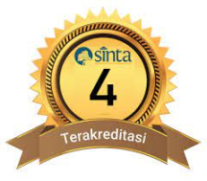PENGGUNAAN MODUL BERORIENTASI MODEL PEMBELAJARAN INKUIRI TERBIMBING PADA MATERI MOMENTUM DAN GERAK HARMONIK UNTUK PENINGKATAN KOMPETENSI FISIKA PESERTA DIDIK
Abstract
The achievement of students' physics competency get increasing by using one oflesson material that have variation and learning model which can increase the student's activity learning. The purpose of this research is to know the influence of using module by orientation the guidance inquiry learning model into materiall momentum and harmonic movement toward achievement of physic compentency at X grade students of SMAN 2 Padang Panjang This research categorized Pre-Experimental Design with the plan of One Shot Case Study. The population are all of the X grade students of SMA N 2 Padang Panjang in academic year 2016/2017. The sample determined by using purposive sampling technique. The data of this research include the achievement of attitude competency, knowledge, and skill. These get from assessment observation sheet, then described and analysis into graph from. The data of knowledge competency achievement got from post test. The data of skill competency achievement got from assessment sheet work show. Then, the data of competency knowledge achievement and skill connected with learning score at using module by orientation the guidance inquiry learning model. The data of knowledge competition achievement and skill analyzed by using simple linear regression test and the connection of two variable test. After doing the research then continue with analyze the reasearch data, it can be concluded that the using of module by orientation guidance inquiry learning get significant influencing toward the students' achievement physics competency at class X SMA N 2 Padang Panjang. At attitude competency shows the good result although it got the score change at each meeting. The use of module by orientation guidance inquiry learning model get influence into knowledge competency achievement as percentage as 21,26% and the skill competency achievement as percentage as 20,27%
Full Text:
PDFDOI: http://dx.doi.org/10.24036/2725171074








